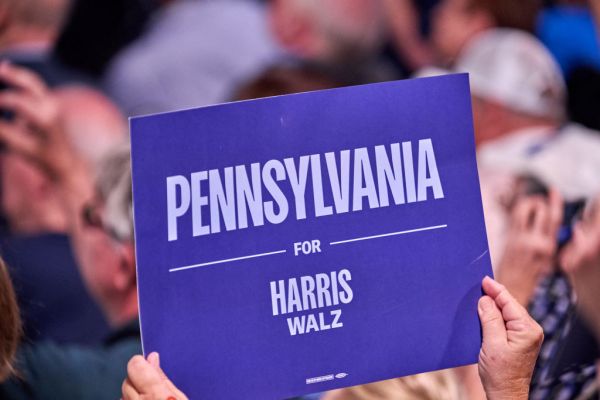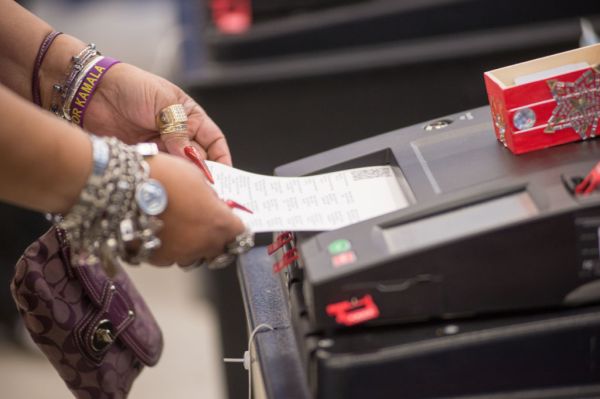Does the Federal Emergency Management Administration (FEMA) prioritize minority groups in its disaster relief? Rumors are spreading online that certain Americans should expect less assistance from the agency based on their race or sexual orientation.
“Friendly reminder: under the Biden Harris administration FEMA is supposed to help out white people last for the purpose of ‘equity’. Don’t believe me? It’s literally on the FEMA website,” reads one Threads post.
The claim is false. FEMA does make equity considerations in its disaster response and prevention programs, but it does not prioritize helping one demographic group over another.
The claims appear to originate from a 2023 panel discussion co-sponsored by FEMA titled “Helping LGBTQIA+ Survivors Before Disasters: Preparedness and Mitigation Considerations.” During the panel, Maggie Jarry, an emergency coordinator for the Department of Health and Human Services’ Substance Abuse and Mental Health Services Administration (SAMHSA), remarked that there was a “shift in emergency management from utilitarian principles, where everything is designed for the greatest good for the greatest amount of people, to disaster equity.” In response to a question about how disasters exacerbate existing inequalities, Jarry explained that disaster relief organizations should assess whether their policies are biased against or neglectful of disadvantaged communities.
“Saving American lives should be priority #1,” Elon Musk posted in a response to the video with more than 30 million views.
Jarry, however, is not a FEMA employee, and her remarks—whether or not they are being taken out of context—do not reflect the agency’s official policy. (Jarry and SAMHSA declined a request for comment from The Dispatch Fact Check.)
Federal law requires disaster assistance provided by the federal government to be impartial and nondiscriminatory. Section 308 of the Robert T. Stafford Disaster Relief and Emergency Assistance Act states that “the distribution of supplies, the processing of applications, and other relief and assistance activities shall be accomplished in an equitable and impartial manner, without discrimination on the grounds of race, color, religion, nationality, sex, age, disability, English proficiency, or economic status,” in all “Federal assistance functions at the site of a major disaster or emergency.”
FEMA’s 2022-2026 strategic plan established that equity, meaning “the consistent and systematic fair, just, and impartial treatment of all individuals, including individuals who belong to underserved communities that have been denied such treatment,” would be a primary goal of the organization. However, this definition does not mean that the agency prioritizes one group over another, but instead that it tailors its relief efforts to the specific needs of different communities.
In a November 2023 report, FEMA defined an “equitable recovery” as one where “policies, practices, communications, and distribution of resources are impartial, fair, just, and responsive to the needs of all impacted community members.” According to the agency, this can be achieved by “taking action to address systematic recovery barriers and ensuring that all community members can meaningfully participate in, and benefit from, recovery planning processes, projects, and decision-making.”
FEMA uses the example of a print flyer about recovery programs to demonstrate its approach to equity. If such a flyer were printed only in English using a small font, its information may not be equally accessible to non-English speaking communities or elderly Americans with impaired vision. To make its response more equitable, the agency argues that it should instead provide the flyer in multiple languages with options for larger text or verbal communication.
If you have a claim you would like to see us fact check, please send us an email at factcheck@thedispatch.com. If you would like to suggest a correction to this piece or any other Dispatch article, please email corrections@thedispatch.com.







Please note that we at The Dispatch hold ourselves, our work, and our commenters to a higher standard than other places on the internet. We welcome comments that foster genuine debate or discussion—including comments critical of us or our work—but responses that include ad hominem attacks on fellow Dispatch members or are intended to stoke fear and anger may be moderated.
With your membership, you only have the ability to comment on The Morning Dispatch articles. Consider upgrading to join the conversation everywhere.